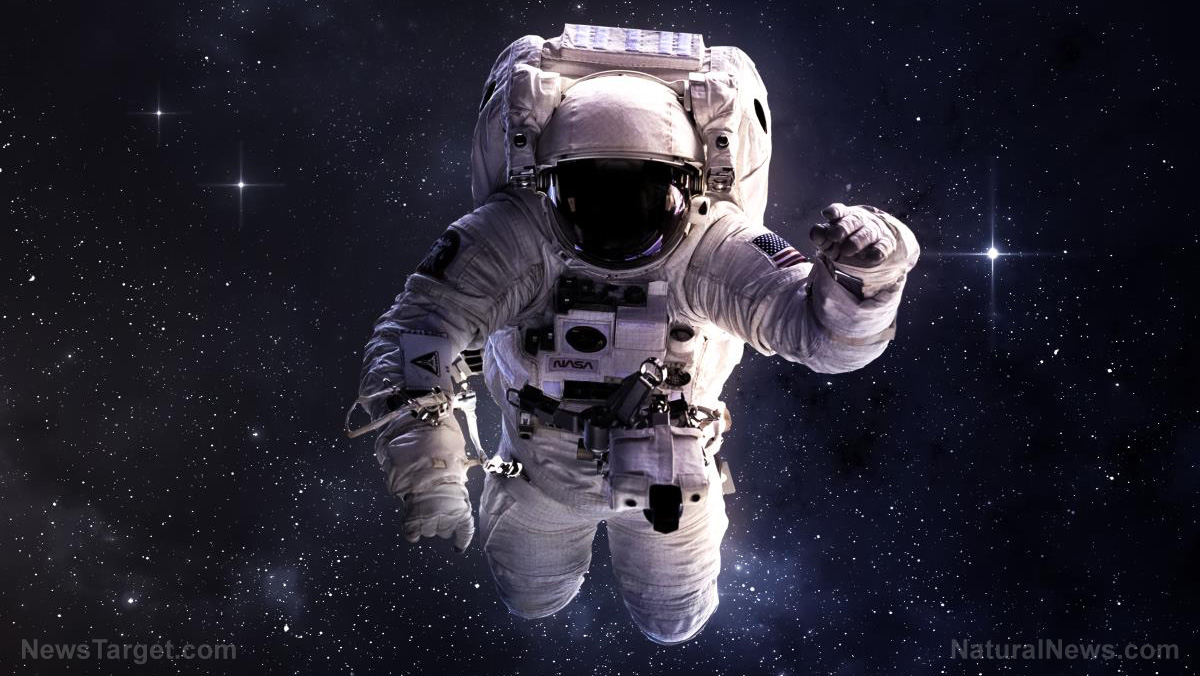How space flight makes you flighty: A look at how weightlessness changes astronauts’ brains
02/10/2018 / By David Williams

Microgravity is an interesting phenomenon that affects astronauts in space in many interesting ways. Although space travel has been known to have certain effects on the bodies of astronauts, such as making bones and muscles atrophy after a certain time frame, a new study shows that there are effects on the human brain as well.
According to a report on the study, which was funded by the National Aeronautics and Space Administration and published in the New England Journal of Medicine, a team of researchers looked at before- and after-mission magnetic resonance imaging (MRI) scans of a total of 34 different astronauts — 18 of them spent months working on the International Space Station (ISS) while 16 of them went on much shorter trips of about 14 days on average aboard the space shuttle. What they found was that microgravity had some noticeable effects that differed among the astronauts, regardless of their similarities in age and flight experience.
Firstly, and perhaps the most significant finding made by the researchers, is the fact that the brain somehow manages to float toward the top of the skull in microgravity. Dr. Donna Roberts, a practicing Neuroradiology doctor from the Medical University of South Carolina, reported the finding, along with her colleagues. According to their report, all 12 long-flight astronauts showed similar changes to the positions of their brains inside their skulls, with Roberts noting, “you can see the brain shifting upward.”
It is said that the floating brain tends to remain up in its new elevated position many days after the astronauts came back to Earth, although it wasn’t possible to do any follow-up scans as there were no second post-flight MRI scans, so whether or not the brain returned to its original position currently isn’t known. Meanwhile, none of the short-trip astronauts showed such changes. It is speculated that perhaps their brains did float upward as well, but due to their shorter flight periods, things might have gone back to normal before the MRI scans caught them.
Support our mission and protect your health: Organic Seeds of Life combines Red Raspberry Seed Power, Black Cumin Seed Power and Red Grape Seed Powder into the most potent nutrient-rich supplemental superfood powder you've ever experienced. Loaded with flavonoids, antioxidants, anthocyanins, OPCs, ALA and a vast array of vital nutrients. Learn more here.
Another change is the fact that the part in the human brain called the central sulcus, which is what separates the cortex’s frontal lobe from the parietal lobe located behind it, became narrower. This was true in 17 of all 18 long-duration astronauts, but happened in only three of all 16 short-mission astronauts. According to Roberts, this occurrence “might lead to functional changes,” such as how astronauts suddenly find it difficult to adapt their movements to microgravity.
Finally, the last major change noted by the researchers was related to the cerebrospinal fluid (CSF) in the brain. Evidently, the astronauts who experienced having a narrower central sulcus thanks to microgravity ended up having less of it flow through vessels at the top of their brains. And since the skull is a fixed space and all of that liquid had to go somewhere, Roberts stated: “What we found is that CSF-filled spaces in the center of the brain get larger.”
It has been said that negative changes in the flow of CSF in the brain such as this is linked with Alzheimer’s disease, multiple sclerosis, and other disorders, but whether it’s the cause or effect is still unclear. For now, the researchers are going to try to get to the bottom of it, because as you can imagine, interplanetary flights — such as a trip to Mars — will take a long time. Having that kind of information would be beneficial.
For more stories regarding the unknown wonders of the universe, visit Space.news.
Sources include:
Tagged Under: astronauts, Brain, brain health, Gravity, microgravity, neuroscience, research, Space, space travel, weird science




















